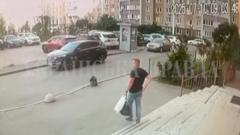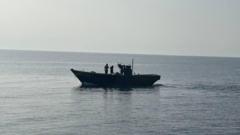Nearly half a century after the assassination of President Park Chung-hee, the retrial of Kim Jae-gyu, the man behind the shooting, reignites debates about his motives and the president’s controversial legacy. Was this act an impulsive coup or a necessary sacrifice for democracy?
Retrial of a Divisive Figure: Was Kim Jae-gyu a Hero or a Villain?

Retrial of a Divisive Figure: Was Kim Jae-gyu a Hero or a Villain?
As South Korea revisits a pivotal event in its history, the retrial of KCIA chief Kim Jae-gyu raises questions about treason, democracy, and the legacy of dictatorship.
In a legal twist that echoes through the annals of South Korean history, the retrial of Kim Jae-gyu begins to reconsider the actions of the man who assassinated President Park Chung-hee on 26 October 1979. Yoo Seok-sul, a former KCIA security guard, paints a vivid picture of that fateful night in a “safe house” where Park entertained trusted confederates. As gunshots shattered the evening’s calm, chaos unfolded, ultimately culminating in the killing of a leader whose 18-year rule had become synonymous with both economic progress and oppressive governance.
Kim Jae-gyu, a long-time friend of Park and head of the Korea Central Intelligence Agency (KCIA), emerged as a controversial figure ever since he shot the president that night. Executed for insurrection, Kim has since stirred a deeply polarized discussion about his legacy. This retrial seeks to reassess whether he acted out of treasonous ambition or in defense of a democracy that had become increasingly tenuous under authoritarian rule.
Family members and supporters of Kim argue for his exoneration, suggesting that his assassination of Park, whom he claimed was poised to unleash chaos, was a self-sacrificing act aimed at “saving” the nation. With South Korea experiencing a political climate that echoes its turbulent past—particularly following the recent impeachment of President Yoon Suk Yeol—the case takes on heightened relevance. The echoes of Kim Jae-gyu’s legacy intersect with current debates about power, governance, and the essence of patriotism.
The retrial unfolds amidst questions about the nature of justice in a country shaped by past traumas. Critics of Kim point out that his actions were impulsive rather than part of a grand ideological revolution. Despite the contentious backdrop, attorney Lee Sang-hee contends that the case posed for Kim was not as straightforward as the prosecution framed it. With allegations of torture during his initial trial surfacing in the new retrial, the discourse swirls around whether a legally flawed process had first curtailed Kim’s rights.
As this complex narrative unfolds in South Korea's courts, the legacy of Park Chung-hee also comes under the microscope. His tenure, marked by both industrial prowess and severe repression, challenges present-day observers to reconcile progress with the costs incurred in its pursuit. Advocacy for Kim's retrial is now also a call to reassess the very foundations upon which South Korea's democracy stands.
The court will ultimately adjudicate whether Kim Jae-gyu was a traitor or a patriot, leaving an indelible mark on contemporary reflections of historical grievances. As tensions remain palpable, both in the courtroom and in the hearts of citizens, this retrial reveals the ongoing struggle of a nation coming to terms with its past—a reckoning that may influence its path forward.





















